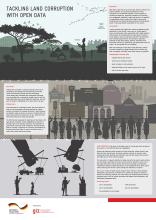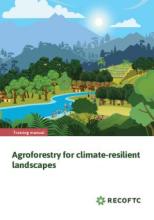Land Library Search
Through our robust search engine, you can search for any item of the over 73,000 highly curated resources in the Land Library.
If you would like to find an overview of what is possible, feel free to peruse the Search Guide.
/ library resources
Showing items 1 through 9 of 14.In 2019, the Food and Agriculture Organization of the United Nations (FAO) published a framework to provide important insights into the successes and shortcomings of community-based forestry at the country level.
Open Data is data that can be freely used, shared and built-on by anyone, anywhere, for any purpose. Open Data is widely considered to be an effective response to land corruption by increasing transparency, supporting innovation and increasing civic engagement.
This guide is for forestry practitioners from local communities, governments, the private sector, civil society and academia in Southeast Asia.
L’aménagement foncier agricole, forestier et environnemental, jadis dénommé remembrement, est un mode d’aménagement du territoire ayant pour objet la restructuration foncière.
Municipal planning in Nepal has evolved from an approach managed by only land-use planners and governm
RECOFTC, in partnership with ICRAF, has developed a regional training manual on agroforestry for climate-resilient landscapes with the objective to train future extensionists and practitioners working on agroforestry.
Land in Uganda is a delicate resource that has caused many conflicts over the past years. About 80% of pending court cases in the country relate to land today.
Knowledge of policies on land governance not only improves the way issues pertaining to land rights are handled; but also minimises waste of time and money lost on land conflict.
Responsible Land Policy in Uganda (RELAPU) is a project implemented by the German International Cooperation (GIZ) and financed by the German Federal Ministry for Economic Cooperation and Development (BMZ).









